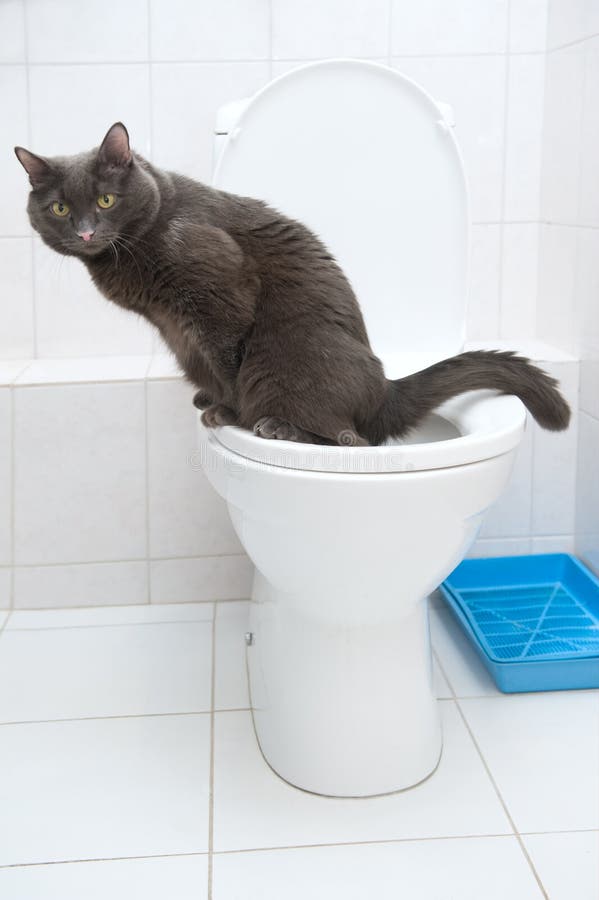Why You Must Never Flush Cat Poop Down Your Toilet - Important Facts
Why You Must Never Flush Cat Poop Down Your Toilet - Important Facts
Blog Article
This post following next in relation to How to Dispose of Cat Poop and Litter Without Plastic Bags is unquestionably enlightening. You should take a look.

Introduction
As pet cat proprietors, it's essential to bear in mind just how we take care of our feline pals' waste. While it may seem hassle-free to flush pet cat poop down the bathroom, this practice can have destructive repercussions for both the environment and human wellness.
Environmental Impact
Purging feline poop introduces dangerous microorganisms and bloodsuckers right into the water supply, posturing a significant threat to marine environments. These impurities can negatively influence aquatic life and compromise water top quality.
Health and wellness Risks
In addition to environmental worries, flushing cat waste can also posture health and wellness dangers to humans. Cat feces might have Toxoplasma gondii, a parasite that can cause toxoplasmosis-- a possibly severe health problem, specifically for pregnant females and people with weakened body immune systems.
Alternatives to Flushing
The good news is, there are safer and much more responsible ways to deal with pet cat poop. Consider the adhering to options:
1. Scoop and Dispose in Trash
One of the most common method of throwing away pet cat poop is to scoop it into a biodegradable bag and toss it in the garbage. Be sure to utilize a specialized trash scoop and deal with the waste promptly.
2. Usage Biodegradable Litter
Opt for biodegradable feline litter made from products such as corn or wheat. These trashes are environmentally friendly and can be safely thrown away in the garbage.
3. Bury in the Yard
If you have a lawn, take into consideration burying feline waste in a marked area away from veggie gardens and water sources. Be sure to dig deep enough to prevent contamination of groundwater.
4. Set Up a Pet Waste Disposal System
Invest in a family pet garbage disposal system especially developed for cat waste. These systems utilize enzymes to break down the waste, lowering smell and ecological effect.
Conclusion
Liable animal ownership extends past providing food and sanctuary-- it likewise involves appropriate waste administration. By refraining from purging cat poop down the toilet and selecting different disposal approaches, we can decrease our environmental impact and safeguard human health.
Why You Should Never Flush Cat Poop Down the Toilet
A rose by any other name might smell as sweet, but not all poop is created equal. Toilets, and our sewage systems, are designed for human excrement, not animal waste. It might seem like it couldn’t hurt to toss cat feces into the loo, but it’s not a good idea to flush cat poop in the toilet.
First and foremost, assuming your cat uses a litter box, any waste is going to have litter on it. And even the smallest amount of litter can wreak havoc on plumbing.
Over time, small amounts build up, filling up your septic system. Most litter sold today is clumping; it is made from a type of clay that hardens when it gets wet. Ever tried to scrape old clumps from the bottom of a litter box? You know just how cement-hard it can get!
Now imagine just a small clump of that stuck in your pipes. A simple de-clogger like Drano isn’t going to cut it. And that means it’s going to cost you big time to fix it.
Parasitic Contamination
Believe it or not, your healthy kitty may be harboring a nasty parasite. Only cats excrete Toxoplasma in their feces. Yet it rarely causes serious health issues in the cats that are infected. Most people will be fine too if infected. Only pregnant women and people with compromised immune systems are at risk. (If you’ve ever heard how women who are expecting are excused from litter cleaning duty, Toxoplasma is why.)
But other animals may have a problem if infected with the parasite. And human water treatment systems aren’t designed to handle it. As a result, the systems don’t remove the parasite before discharging wastewater into local waterways. Fish, shellfish, and other marine life — otters in particular — are susceptible to toxoplasma. If exposed, most will end up with brain damage and many will die.
Depending on the species of fish, they may end up on someone’s fish hook and, ultimately on someone’s dinner plate. If that someone has a chronic illness, they’re at risk.
Skip the Toilet Training
We know there are folks out there who like to toilet train their cats. And we give them props, it takes a lot of work. But thanks to the toxoplasma, it’s not a good idea.

As an avid reader about Don’t flush cat feces down the toilet, I think sharing that information was worthwhile. Are you aware of somebody who is interested by the subject? Do not hesitate to promote it. We enjoy reading our article about How to Dispose of Cat Poop and Litter Without Plastic Bags.
This Site Report this page